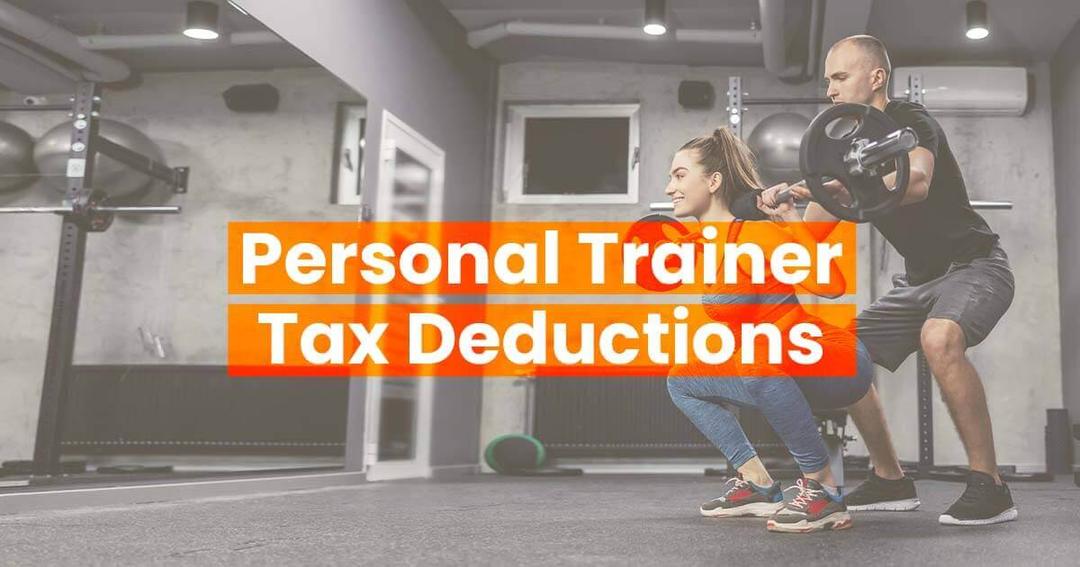
There are more ways to be a self-employed personal trainer today than ever. You could be a traveling personal trainer, coach, or contractor for a larger fitness organization or even offer online training services!
Whatever your work looks like, you've put in tremendous time, money, and labor to make that work possible. When you're working for yourself, there's no one else but you to set up the structure and support your work.
Fortunately, there are tax deductions for fitness professionals that will recognize your massive effort and expense. Explore this guide to personal trainer tax deductions and ensure you get the tax savings you're eligible for.
Can I Deduct Personal Trainer Expenses?
You can deduct business expenses from your taxable income as a self-employed personal trainer, which is a crucial part of your personal trainer taxes. Money used to support your business shouldn't count as taxable profit. Consider working with a professional if you’re concerned about deductions or you’ve never done your taxes before. The stakes are high, and you may need an accountant to help you with your self-employed tax return before tax time arrives.5 Deductions You Can Claim as a Personal Trainer or Fitness Coach
You can claim deductions for many of the costs of doing business as a personal trainer or fitness coach. Here are a few of the significant tax deductions for personal trainers you can take advantage of:1. Exercise Equipment and Supplies
Personal trainers often work with their clients using various equipment, from hand weights to treadmills and elliptical machines. If you purchase this equipment for your small business on your own, you should claim a tax deduction for it. If you see clients in a training room, you should be able to write off any personal training equipment costs incurred as business expenses. However, you can’t deduct expenses for your home gym if you don’t use it for a business-related purpose.2. Certification & Education Costs
Personal trainers can deduct all expenses for required licensing and continuing education, including obtaining official certificates or maintaining your expertise. You can deduct expenses for business-related books, supplies, and subscriptions to fitness websites, publications, or journals relevant to your field. Plus, you can deduct specific membership fees if you belong to a professional association.3. Office Costs
Where do you conduct your work? If you rent a gym or office space, all costs associated with that space can be claimed as deductions on your taxes. If you keep a home office where you train clients in your own space, you can claim a corresponding portion of your home rent and utility costs, assuming that the home office space is used exclusively for business purposes. Other varied office-related expenses are also deductible, including anything from paper and staplers to printer ink and accounting software.4. Travel Expenses
If you travel to seminars, conferences, or events for personal trainers, you can claim your travel and hotel costs as part of your personal trainer tax deductions. When traveling out of town for work or driving long distances to training sessions, you can also write off mileage on your personal vehicle. When you write off mileage, you can either add up actual vehicle expenses or use the standard mileage rate set by the IRS.5. Liability & Health Insurance Premiums
Tax deductions for athletic coaches and trainers include insurance. If you pay your liability insurance, that's a tax-deductible expense. Self-employed trainers can also claim health insurance premiums as business expenses. You can also deduct uninsured medical expenses, but they're not business expenses, which means you can only claim them if you're itemizing your personal deductions.What Else Qualifies as Tax-Deductible Expenses?
What can I deduct from my taxes for my fitness business? You should be able to claim deductions for nearly any business expense you can justify as being necessary for your work. However, this only applies to your self-employed personal trainer taxes. If you are a W-2 employee, you can only claim personal deductions if you are itemizing your deductions.How to Claim Personal Trainer Tax Deductions
As you prepare to file taxes as an independent contractor, keeping careful records of your income and expenses is the most important thing. You need receipts testifying to the business expenses you'll be claiming. You'll fill out your 1040 personal tax return as usual, and here you can claim the standard deduction or itemize your personal deductions. Then you'll move on to IRS 1040 Schedule C, Profit or Loss from Business, which is the form you'll use to report your personal business income and deductions. Your business expenses count as losses associated with that business. Don’t hesitate to seek help from an accountant as you work on putting together your small business tax return.How We Can Help You Maximize Your Tax Deductions
For more help with your small business taxes and finding personal trainer tax deductions, turn to the accounting experts at 1-800Accountant. Whether you're a small business owner or a self-employed individual working on your personal trainer tax return, we can help you keep more of the money you work hard to make.This post is to be used for informational purposes only and does not constitute legal, business, or tax advice. Each person should consult his or her own attorney, business advisor, or tax advisor with respect to matters referenced in this post. 1-800Accountant assumes no liability for actions taken in reliance upon the information contained herein.
